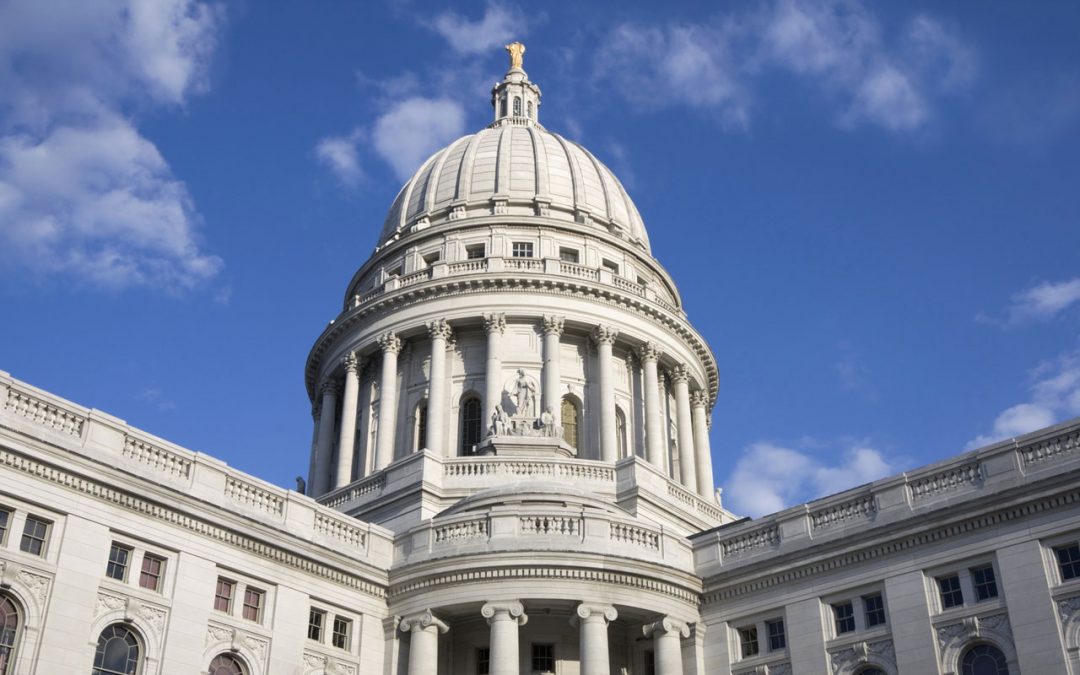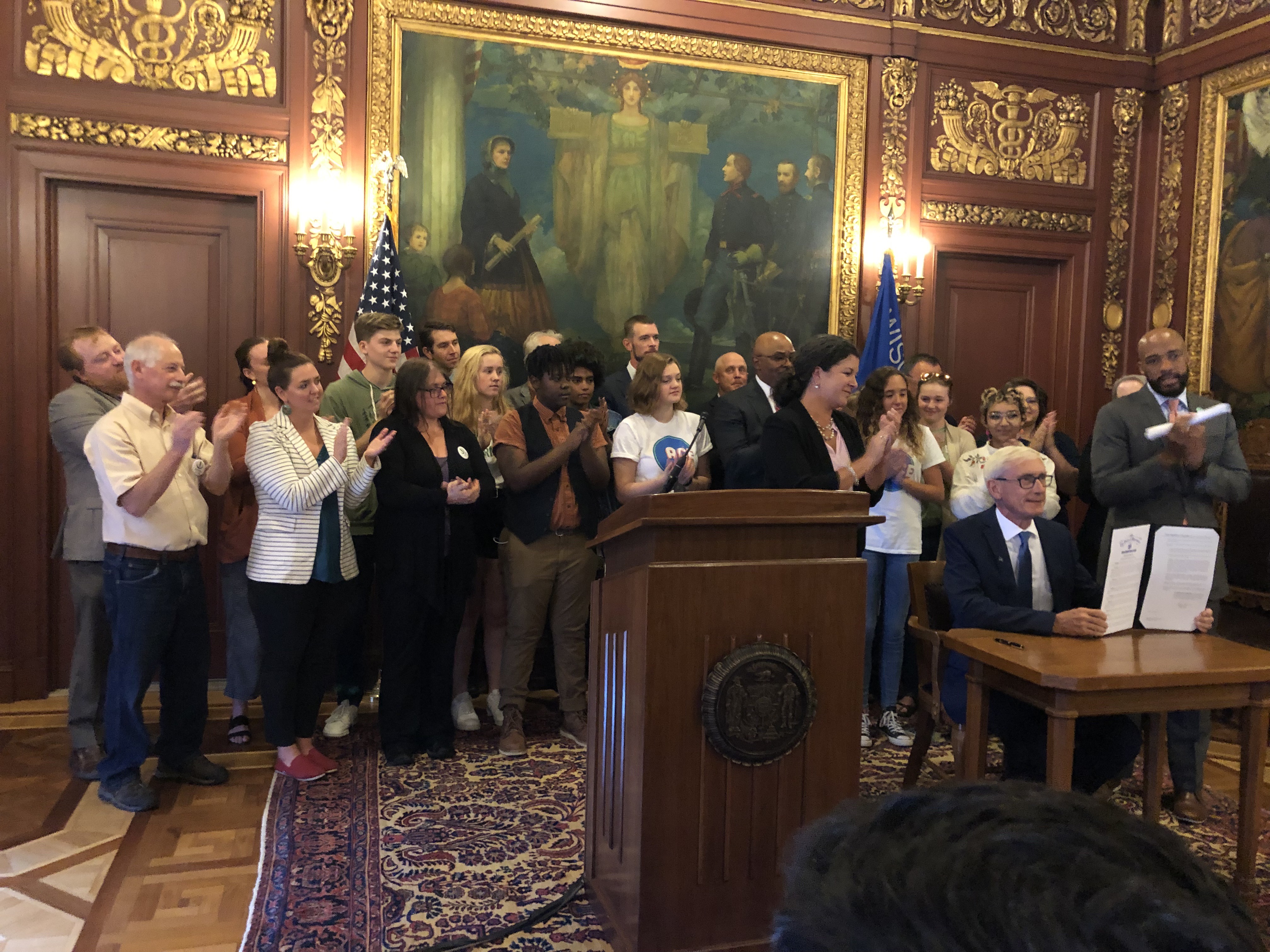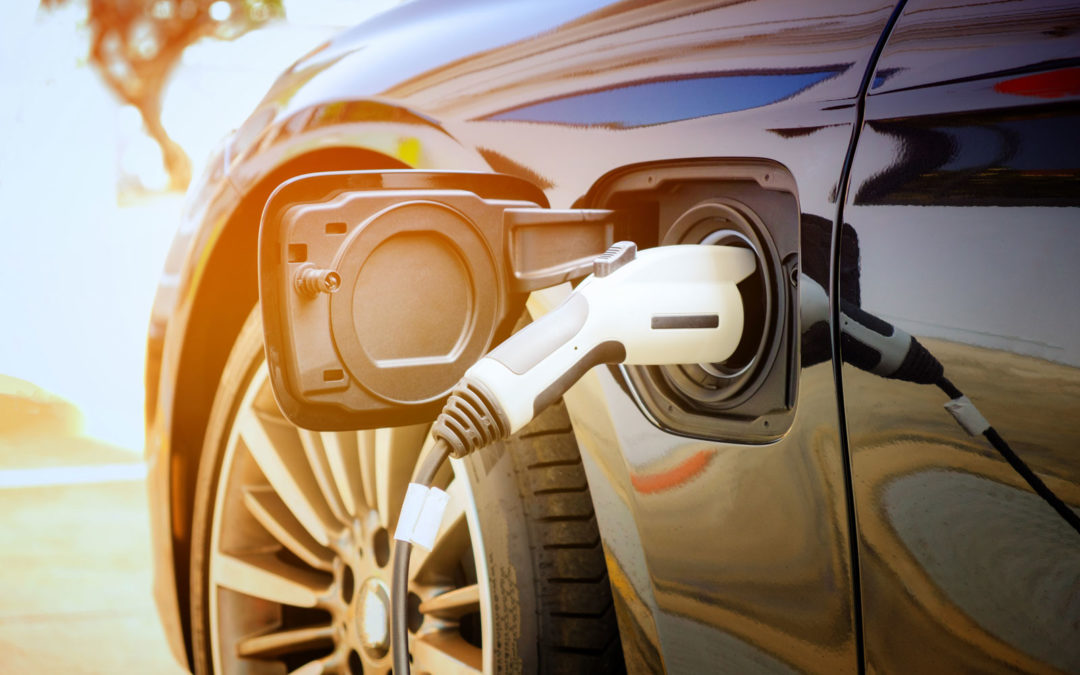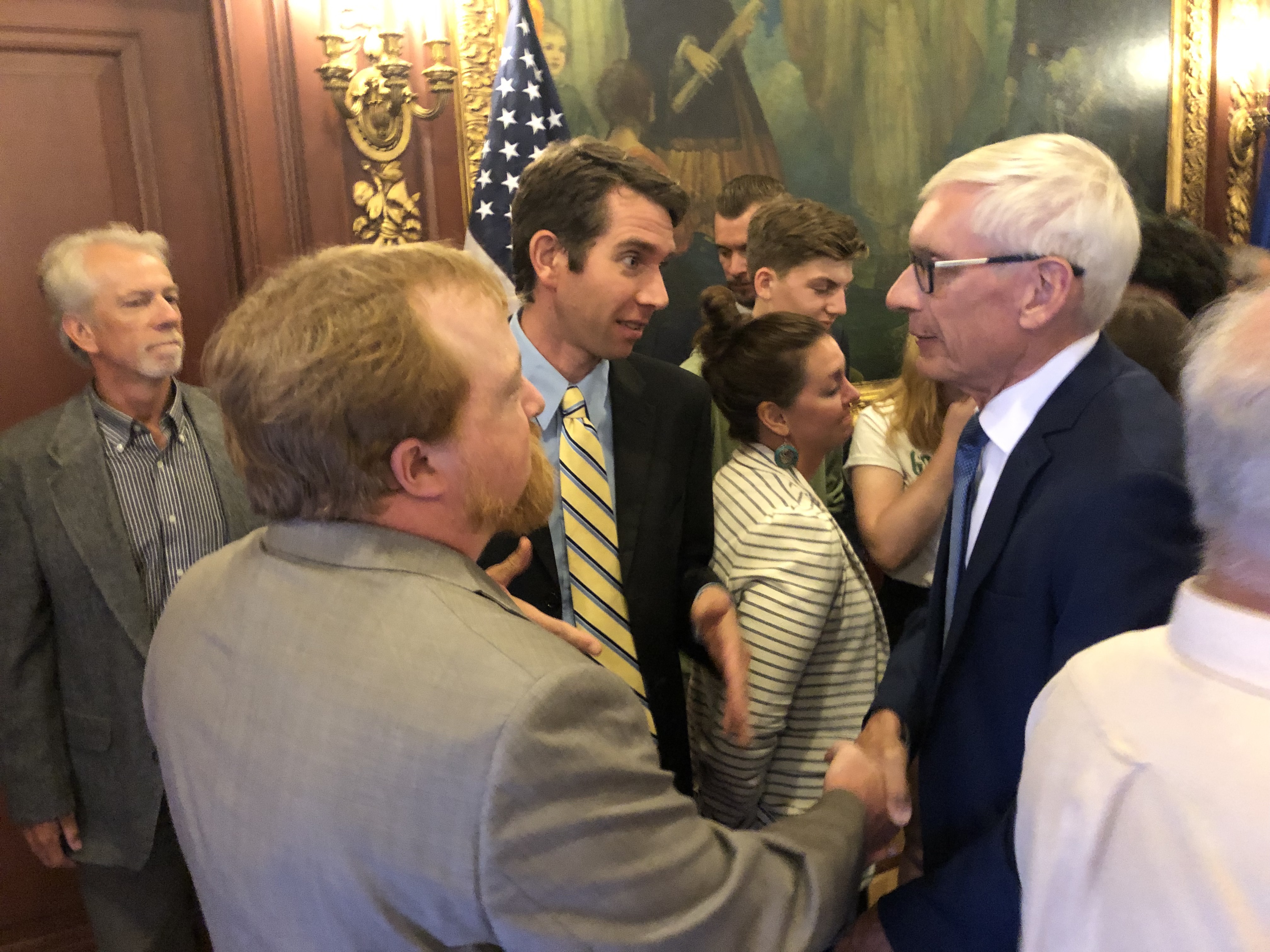
by Tyler Huebner | Jan 31, 2020 | Advocacy, Policy, Public Service Commission, Renewables
Bill Would Solidify Funding for Citizens Utility Board and Streamline Solar/Wind Permitting
RENEW Wisconsin is proud to announce our support for a legislative initiative that will support the Citizens Utility Board with a more robust level of annual funding. This bill will also streamline one element of permitting solar and wind farms of 100 megawatts or larger.
The Chairs of the Assembly Energy Committee and the Senate Utilities and Housing Committees are the co-authors of Assembly Bill 712 and Senate Bill 689, which were introduced at the request of the Public Service Commission, whose Chairperson, Rebecca Valcq, was appointed by Governor Tony Evers.
Funding for Citizens Utility Board
Citizens Utility Board (CUB) has been an important energy stakeholder since its founding in 1979. CUB’s primary role is to keep energy bills affordable for our state’s residents and small businesses.
CUB and RENEW Wisconsin have had many shared priorities over the years. Perhaps the best example is the importance of our state’s Focus on Energy program and the value of additional utility-sponsored energy conservation programs. These programs help customers save energy and save money on their utility bills, while also reducing the need to build new power plants.
As we look ahead to more coal power plant closures in Wisconsin, there is a big opportunity to strike a cost-effective balance between utility renewable energy development and customer-side solutions, including both energy efficiency and on-site renewable energy. A strong CUB will be important to those conversations.
This bill would institute a new base-funding model for CUB whereby customers of the five largest investor-owned utilities would together provide them with $900,000 in annual funding. These funds would be used by CUB to participate in most of their usual PSC activities, and they would be allowed to use outside funds to conduct other activities.
We are glad to see the PSC and Legislators find common ground to provide CUB with adequate and stable funding so they can continue to be a strong voice for ratepayers and affordable energy in Wisconsin.
Streamlining 100 MW+ Solar & Wind Farm Connections
The first two utility-scale solar farm proposals introduced in Wisconsin resulted in four “CPCN” proceedings (Certificate of Public Convenience and Necessity). Each of the two solar energy projects needed a very short connecting “tie line” to connect the solar farms into a nearby electric grid substation. That tie line is necessary to move the solar power to all the customers who can use it!
Current law mandates that the tie lines required their own separate CPCN evaluation. This bill would streamline that effort, so that a solar or wind farm and the short associated “tie line” can be reviewed together in one CPCN application. Since the renewable energy project would not be productive without the tie line and the tie line wouldn’t exist without the renewable energy resource, it makes sense to conduct their review in the same docket.
RENEW Wisconsin supports this effort which will improve project development efficiency.

by Tyler Huebner | Aug 16, 2019 | Jobs, Policy, Public Service Commission, RENEW Wisconsin, Renewables
Today, Wisconsin Governor Tony Evers, Lt. Governor Mandela Barnes, and Public Service Commission Chair Becky Cameron Valcq announced an Executive Order to create the Office of Sustainability and Clean Energy within the state’s Department of Administration.
The office shall, “In partnership with other state agencies and state utilities, achieve a goal of ensuring all electricity consumed within the State of Wisconsin is 100% carbon-free by 2050.”
See the Governor’s Press Release and the Executive Order.
RENEW Wisconsin’s Executive Director Tyler Huebner issued the following statement:
“The cost of utility-scale solar has declined 88% in the past decade, and utility-scale wind costs have declined 69% as well. Utilities across America and in Wisconsin are finding that it is less expensive to build new solar and wind energy facilities than it is to keep operating some existing coal power plants. If the cost of solar and wind continue to decline, a transition to 100% clean energy could be an economic boon to customers. Factoring in the environmental and health benefits of clean energy, this is definitely a good direction for Wisconsin.”
“In addition, we know expanding rooftop solar and energy efficiency will help homeowners, businesses, farmers, and local governments transition to clean energy while saving money on their energy bills.
“Achieving this goal can also create thousands of well-paying jobs across Wisconsin. Today, over 76,000 people already work in the clean energy industry, and we can grow jobs in this burgeoning industry.”

by Jim Boullion | May 3, 2019 | Advocacy, Electric Vehicles, Policy, Renewables
The Joint Finance Committee will begin voting on individual items for the 2019-2021 State Budget starting on May 9th. Joint Finance is where nearly all of the key decisions about this year’s budget will be made. Your help is needed to ensure that pro-renewable energy issues remain in the final Joint Finance budget package!
Legislators on Joint Finance are especially important to the final decisions, but every legislator will have a vote in their respective partisan caucus and can impact what happens behind those closed doors. Your legislator could be the key voice and key vote that keeps one or more of these provisions in the Budget!
Please call or write to your legislators and urge them to support the electric vehicle and renewable energy provisions in the budget!
Items Under Consideration for Inclusion in the Budget
Some energy items from Governor Evers’ budget have already been removed including establishing the Office of Sustainability and Clean Energy, Utility Contribution for Energy Efficiency and Renewable Resource Programs, and State Carbon-Free Electricity Goal.
The following items still have a chance of being in the final bill if we can generate support for them:
- Allocate $10 million of the VW Settlement Funds for EV Charging Station Grants: The Assembly GOP announced that they have a similar proposal for the VW money, but with slightly different details. Despite bipartisan support for funding EV charging stations, there are powerful entities who oppose this provision, or any money at all going to EV charging station infrastructure and are suggesting the money go to retrofitting diesel trucks instead!
- Adds a $75 registration fee for all hybrid vehicles, not just PHEV’s: All hybrid vehicles (any vehicle that uses a battery to increase fuel economy) would pay an additional $75 annual fee that was originally designed to cover only Plug-in-Hybrid Vehicles. Battery-only electric vehicles (BEV’s) currently pay an additional $100 annual fee on top of the regular registration fee. The additional hybrid fee is designed to recover the gas taxes* that would have been paid if these vehicles were powered by gasoline only. There is currently a lobby effort being made to increase the registration fee on pure electric vehicles from $100 to $300 per year, which RENEW Wisconsin strongly opposes!
(*Wisconsin’s current state excise tax rate dedicated to transportation is 30.9 cents per gallon. When the state’s petroleum clean-up program fee is added, total state taxes and fees collected at the pump are 32.9 cents per gallon)
- Allocate $50 million to fund energy conservation projects and $25 million for renewable energy projects on state-owned facilities. These funds would help state agencies and the UW System meet their energy conservation goals and reduce utility bills. The savings from the reduced utility costs would be used to pay for these energy conservation and renewable energy projects!
- Increase Intervenor Compensation Funding: The bill increases from $300,000 to $500,000 the annual grants the PSC is allowed to make to nonprofit entities that advocate on behalf of utility ratepayers. There are numerous important cases coming before the PSC in the next few years on issues such utility rate increases, renewable energy projects, coal plant closings and electric vehicles rules. It is important that ratepayers have a strong voice at the table when these critical issues are being decided.
- Tax Credits for Energy Efficiency or Renewable Energy: The Wisconsin Economic Development Corp. (WEDC) would be allowed to award business tax credits of 5% for investments made on projects that improve energy efficiency or that generate energy from renewable resources. These investments will help Wisconsin businesses reduce their energy usage, save money and create jobs, which is good for everyone!
Thank you for your help in getting these items included in the final budget bill! If you have any questions or would like more information about any of these energy related issues please contact Jim Boullion, RENEW Wisconsin’s Director of Government Affairs at jim@renewwisconsin.org, or call at (608) 695-7004.

by Jim Boullion | Mar 13, 2019 | Advocacy, Electric Vehicles, Focus on Energy, Policy, Renewables
On February 28, Governor Tony Evers released his 2019-2021 state budget. The budget bill will now go to the Joint Finance Committee who will review it and get briefings on the various provisions from the Governor’s administration and specific state agencies. The committee will also hold a series of hearings around the state to learn what the general public thinks about the budget bill provisions. By statute, the budget bill is supposed to be complete by July 1st, but that date is not often met, regardless of which party holds power. Between now and then, please contact your state legislators and let them know what you think about the various provisions of the bill. You can find your legislator’s contact information by following this link.
Below is a short summary of the Governor’s proposals related to clean energy.
100% Carbon-Free Goal
Establishes a state goal that all electricity produced within the state should be 100 percent carbon-free by 2050. While not a mandate or requirement, writing this goal in Wisconsin’s statutes will help state agencies, the legislature and the public know what we are trying to achieve.
Allocate $75 million in bonding to fund energy conservation projects on state-owned facilities. $25 million of these funds would be allocated to renewable energy projects.
These funds will be used for energy conservation projects to help state agencies and UW System meet their energy reduction goals and reduce utility costs. Renewable projects could include solar, wind, standby generators or geothermal enhancements to state facilities. The achieved savings from the reduction in utility costs would be used to pay the debt service payments on the bonds.
Focus on Energy
Allows the Public Service Commission to increase funding for the Focus on Energy program beyond the current statutory limit of 1.2 percent of utility revenues. The bill also requires the PSC to submit to the Joint Finance Committee a proposal for spending a greater percentage on the programs than is currently allocated (The amount is to be determined by the PSC).
Create the Office of Sustainability and Clean Energy
Transfer the State Energy Office and its employees from the PSC to the Department of Administration. The new office would:
- Administer a $4 million clean energy research grant.
- Advise state agencies in developing sustainable infrastructure to reduce energy use.
- Study and report on the status of existing clean and renewable energy efforts by the state.
- Serve as a single point of contact to assist organizations pursuing clean energy opportunities.
- Identify clean energy funding opportunities for private and governmental entities.
- In coordination with other state agencies, collect and analyze data needed for clean and renewable energy planning and review those plans with the governor and legislature.
Use a Portion of VW Settlement Funds for EV Charge Station Grants
Spend $10 million of the remaining $25 million from the Volkswagen emissions settlement on grants for electric vehicle charging stations. The rest would be dedicated to replacing public transit vehicles. $42 million of the original $67.1 million that Wisconsin was allocated from the settlement was spent in 2017-19 for replacement of state vehicles and the transit assistance program.
Hybrid Vehicle Registration Fees – Definition expanded to include all hybrids, not just PHEV’s
All hybrid vehicles (any vehicle that uses a battery to increase mpg) would pay the additional $75 annual fee that was originally designed to cover only Plug-in-Hybrid vehicles. This is in addition to the proposed $96 (up from $75) annual vehicle registration fee paid by all vehicles. All-electric vehicles would continue to pay the additional $100 annual fee that was already in the statutes. The fee is designed to recover the sales taxes that would have been paid if they were powered by gasoline that is used to support the transportation budget.
WEDC Tax Credits for Energy Efficiency or Renewable Energy
WEDC would be allowed to award business tax credits of 5% for investments made on projects that improve energy efficiency or that generate energy from renewable resources.
Ratepayer Advocate (Intervenor Compensation) Grants
The bill increases from $300,000 to $500,000 the annual grants the PSC is allowed to make to nonprofit corporations that advocate on behalf of utility ratepayers.
If you have any questions or would like more information about any of these energy related issues please contact Jim Boullion, RENEW Wisconsin’s Director of Government Affairs.

by Jane McCurry | Mar 6, 2019 | Electric Vehicles, Policy
Last fall, I wrote a blog about the Volkswagen Mitigation Settlement, A Big Opportunity for Electric Vehicles. The Federal Volkswagen Mitigation Trust awarded Wisconsin $67.1 million to replace aging diesel vehicles. The goal of the settlement is to counteract the damage done while over-polluting Volkswagen cars were in operation.
Wisconsin’s plan for spending approximately two-thirds of the funding, or $42 million, included replacing transit buses and state fleet vehicles. Now, it’s time to decide what to do the last third of that funding, about $25 million.
Good News!
Governor Evers released his State of Wisconsin Budget in Brief last Thursday. Good news! It included an allocation for the rest of Volkswagen Settlement funding, with a specific call-out for $10 million to fund electric vehicle charging infrastructure in Wisconsin. The budget calls for the $10 million to be administered as a grant program by the Department of Administration.
This is a big win. Per the settlement terms, states are allowed to use up to 15% of their funding to pay for electric vehicle infrastructure, which comes to just about $10 million in Wisconsin. Taking full advantage of this opportunity means Wisconsin drivers can drive with the confidence that they can recharge in public if they need to. This funding will go a long way to support a vast network of fast recharging stations across the entire state.
The rest of the funding, $15 million, was earmarked for more transit bus replacements. Our hope is that these buses will be electric. Electric buses are so much cheaper to operate, more efficient, and produce zero point-source pollution, making them a “win” for everyone.
What’s Next?
Before these Volkswagen allocations can be spent, the budget needs to pass through the legislature. While there is a chance that this budget will not pass, I am really excited to see a commitment to electric transportation. If this commitment makes it through the legislature, Wisconsin will join 44 other states that have also pledged to take advantage of this opportunity.
It’s a long road to ensure every Wisconsinite has access to affordable and clean transportation. This is a big step on that journey. Stay tuned for more details as we continue to follow the Volkswagen Mitigation Settlement and advocate for using Wisconsin’s funds to advance electric transportation.

by Jim Boullion | Nov 7, 2018 | Policy
Tony Evers Wins Close Race
Recent polling showed that the race for Governor was going to be close, and they were right! Not until a large number of late arriving ballots came in from Milwaukee did it become clear that Tony Evers was the projected winner in a hotly contested race. As of this morning the Walker campaign has not conceded the race as they look into the late reporting from Milwaukee and a few other reported ballot problems. According to the Milwaukee Journal Sentinel, Evers has a 30,849 vote lead, which is 1.18% ahead of Walker. Walker’s campaign can only request a recount if the election results are under 1%. Assuming the results hold up, Evers will take office in January. Even though the GOP retains full control of the legislature, Evers will control the State agencies and has the ability to veto anything that the Republicans in the legislature send to his desk that is not agreed to.
Public Service Commission
Of particular interest to the renewable energy industry is the effect of the elections on the Public Service Commission. Because the PSC has staggered 6-year appointments, control of the PSC will not switch to Governor-elect Evers’ appointees immediately. This is different than state agencies like the Department of Natural Resources or Department of Administration, where Mr. Evers’ appointees will take control when appointed and confirmed by the State Senate. Governor-elect Evers will appoint a new PSC Commissioner, which also must be approved by the State Senate, for a 6 year term which will start on March 1, 2019. It is customary and likely that this individual will become the Chairperson of the PSC. Evers would appoint another PSC Commissioner to start a term on March 1, 2021, at the end of Commissioner Mike Huebsch’s term. Current Chairperson Lon Roberts’ term goes to March 2023. If either of those individuals choose not to complete their term on the Commission, then Evers would select the replacement for the duration of the respective term.
Josh Kaul Apparent Winner over Brad Schimel in Attorney General Race
In an even closer race, Democratic candidate Josh Kaul has a lead of 22,673 votes, or .87% over Schimel. If this holds up, it would be within the 1% threshold for a candidate to be able to request a recount.
Republicans Retain State Assembly
In spite of the statewide races for Governor, Attorney General and US Senate going to the Democrats, the Assembly Republicans appear to have maintained their strong 64-35 majority for the 2019-20 legislative session. One Assembly seat is close enough at this time that a recount may occur. It is between Republican State Treasurer, Matt Adamczyk, and Democratic candidate Robyn Vining. At last count Adamczyk had a 21-vote lead with all precincts reporting.
Republicans Gain in State Senate
With 4 to 5 Senate Republican races expected to be close, many thought that they would lose one or more seats in a year that had hints of Democratic momentum. Instead, the GOP actually gained 1 seat when Andre Jacque (R) retook the 1st Senate District seat from Caleb Frostman (D). Frostman took the seat away from the GOP when he defeated Jacque in a special election earlier this year. These results increase the GOP’s net majority in the State Senate to 19-14 for next session.
Tammy Baldwin Wins Impressive Victory in U.S. Senate Race
The GOP held the majority in the U.S. Senate last night, but Democratic incumbent U.S. Senator Tammy Baldwin easily won reelection against Republican challenger, State Senator Leah Vukmir. Baldwin held a 10 point margin – 55-45% – as of this writing.
All Congressional Incumbents Win Congressional Races
Other than Congressman Paul Ryan, who did not run and is retiring from the House of Representatives at the end of this session, all of the congressional incumbents won reelection. Republicans maintained control over 5 of 8 congressional districts in Wisconsin. Republican candidate, Bryan Steil (CD-1) held Speaker Paul Ryan’s seat for the Republicans.
RENEW Wisconsin will be actively engaging with the Governors’ office and legislature over the next few months to start developing policy initiatives that will advance renewable energy next year.
Please contact our office if you have any questions.




